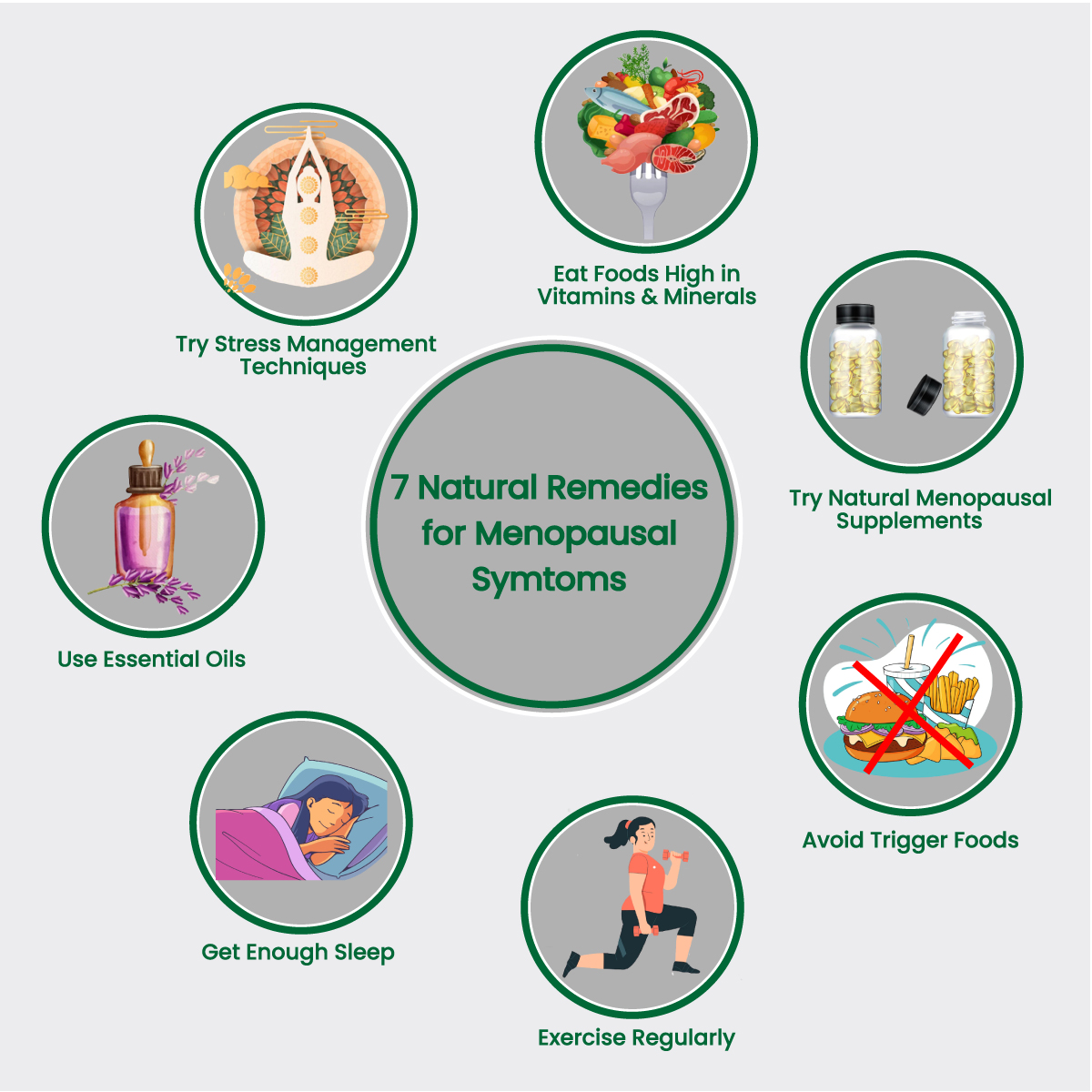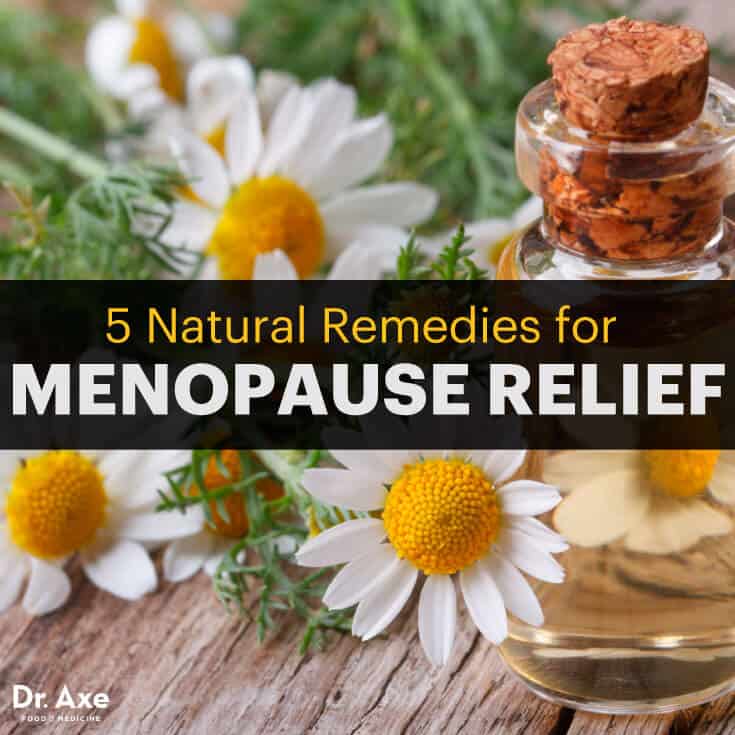Menopause treatment natural: As women transition through the natural process of menopause, they may experience a range of physical, emotional, and psychological changes. This guide delves into the various natural remedies, hormone replacement therapies, alternative therapies, dietary and lifestyle factors, and medical interventions available to manage menopause symptoms effectively.
Menopause is a natural stage in a woman’s life, characterized by the cessation of menstrual periods. It typically occurs between the ages of 45 and 55, and can bring about a variety of symptoms, including hot flashes, night sweats, mood swings, vaginal dryness, and sleep disturbances.
While these symptoms can be challenging, there are numerous options available to help women navigate this transition smoothly and maintain their overall well-being.
Natural Remedies
Menopause, a natural transition in a woman’s life, can bring about a range of symptoms that can affect physical and emotional well-being. Natural remedies offer a holistic approach to managing these symptoms, utilizing herbal supplements, dietary changes, and lifestyle modifications to alleviate discomfort and promote overall health.
Herbal supplements have been traditionally used to address various menopausal symptoms. Some commonly used herbs include:
- Black cohosh:Known for reducing hot flashes and night sweats.
- Red clover:Rich in isoflavones, which have estrogen-like effects and may help with mood swings and vaginal dryness.
- Evening primrose oil:Contains gamma-linolenic acid, which has anti-inflammatory properties and may alleviate breast tenderness.
Dietary changes can also play a significant role in managing menopausal symptoms:
- Phytoestrogens:Found in plant-based foods like soybeans, lentils, and flaxseeds, these compounds have estrogen-like effects and may help alleviate hot flashes and mood swings.
- Calcium and vitamin D:Essential for bone health, which can be affected by hormonal changes during menopause.
- Omega-3 fatty acids:Found in fish and supplements, these fatty acids have anti-inflammatory properties and may help reduce hot flashes and mood changes.
Lifestyle modifications can complement herbal supplements and dietary changes in managing menopausal symptoms:
- Regular exercise:Helps reduce stress, improve mood, and promote sleep.
- Stress management techniques:Yoga, meditation, and deep breathing exercises can help manage stress and anxiety.
- Adequate sleep:Sleep disturbances are common during menopause; establishing a regular sleep schedule and creating a relaxing bedtime routine can help.
Hormone Replacement Therapy (HRT)
Hormone replacement therapy (HRT) is a treatment option for women experiencing symptoms of menopause. It involves taking hormones, either estrogen alone or a combination of estrogen and progestin, to replace the hormones that the body stops producing during menopause. HRT can help relieve a variety of menopause symptoms, including hot flashes, night sweats, vaginal dryness, and mood swings.
There are two main types of HRT:
- Estrogen-only HRTis used for women who have had a hysterectomy (removal of the uterus). It can help relieve hot flashes, night sweats, and vaginal dryness.
- Combination HRTincludes both estrogen and progestin. It is used for women who still have their uterus. Progestin helps to protect the uterus from cancer.
Benefits of HRT
HRT can provide a number of benefits for women experiencing menopause symptoms, including:
- Relief from hot flashes and night sweats
- Improved sleep
- Reduced vaginal dryness
- Improved mood and energy levels
- Reduced risk of osteoporosis
Risks of HRT
HRT is not without risks. Some of the potential side effects of HRT include:
- Nausea
- Vomiting
- Breast tenderness
- Headaches
- Mood swings
- Increased risk of blood clots
- Increased risk of breast cancer
Contraindications of HRT
HRT is not recommended for women who have:
- A history of breast cancer
- A history of blood clots
- A history of liver disease
- A history of endometrial cancer
Alternative Therapies

Alternative therapies are gaining popularity as complementary or alternative approaches to traditional menopause treatments. These therapies aim to address the physical, emotional, and mental symptoms associated with menopause.
Various alternative therapies have shown promising results in managing menopausal symptoms. These include acupuncture, yoga, and massage therapy, among others. Understanding the mechanisms of action and potential benefits of these therapies can help individuals make informed decisions about their treatment options.
Acupuncture
Acupuncture involves the insertion of thin needles into specific points on the body. In the context of menopause, acupuncture is believed to regulate hormonal balance, reduce inflammation, and improve blood circulation.
Research suggests that acupuncture may be effective in alleviating hot flashes, night sweats, and sleep disturbances associated with menopause. A study published in the journal Menopausefound that acupuncture significantly reduced the frequency and severity of hot flashes compared to a placebo group.
Yoga
Yoga is a mind-body practice that combines physical postures, breathing exercises, and meditation. It has been shown to have numerous benefits for overall health and well-being, including reducing stress, improving sleep quality, and promoting relaxation.
In relation to menopause, yoga may help alleviate symptoms such as mood swings, anxiety, and fatigue. A study published in the Journal of Alternative and Complementary Medicinefound that yoga practice led to improvements in mood and sleep quality in postmenopausal women.
Massage Therapy
Massage therapy involves the manipulation of soft tissues to promote relaxation, reduce pain, and improve circulation. It can be particularly beneficial for managing muscle tension, headaches, and stress associated with menopause.
Research suggests that massage therapy may also help reduce hot flashes and night sweats. A study published in the International Journal of Nursing Studiesfound that massage therapy significantly decreased the frequency and severity of hot flashes in postmenopausal women.
Dietary and Lifestyle Factors

Dietary and lifestyle modifications can significantly impact menopause symptoms and overall well-being. Maintaining a healthy diet, engaging in regular exercise, and implementing stress-reducing techniques can alleviate symptoms and improve quality of life.
Dietary Recommendations
- Focus on whole, unprocessed foods:Fruits, vegetables, whole grains, and lean protein provide essential nutrients that support hormonal balance and reduce inflammation.
- Limit processed foods, sugary drinks, and unhealthy fats:These foods can contribute to weight gain, insulin resistance, and hormonal imbalances.
- Include phytoestrogens in your diet:Plant-based compounds found in soybeans, tofu, lentils, and flaxseeds may mimic estrogen and help reduce hot flashes and other symptoms.
Exercise Recommendations
- Engage in regular aerobic activity:Walking, swimming, or cycling for at least 30 minutes most days of the week helps improve cardiovascular health, reduce stress, and alleviate hot flashes.
- Incorporate strength training:Building muscle mass helps boost metabolism, reduce body fat, and improve bone density.
- Consider yoga or tai chi:These mind-body practices promote relaxation, reduce stress, and improve balance.
Stress-Reducing Techniques
- Practice relaxation techniques:Deep breathing exercises, meditation, or yoga can help calm the nervous system and reduce stress levels.
- Get enough sleep:Aim for 7-9 hours of quality sleep each night to reduce fatigue and improve overall well-being.
- Connect with others:Social support from friends, family, or support groups can provide emotional comfort and reduce stress.
By adopting these dietary and lifestyle modifications, women can effectively manage menopause symptoms, improve their overall health, and enhance their quality of life during this transition.
Medical Management

For severe menopause symptoms, medical interventions may be necessary to provide relief and improve quality of life.
Prescription medications, such as antidepressants and anti-anxiety drugs, can be used to manage mood swings, anxiety, and sleep disturbances.
Antidepressants, Menopause treatment natural
- Selective serotonin reuptake inhibitors (SSRIs) and serotonin-norepinephrine reuptake inhibitors (SNRIs) are commonly used antidepressants for menopause symptoms.
- They work by increasing the levels of serotonin and norepinephrine in the brain, which can improve mood, reduce anxiety, and promote sleep.
- Examples include fluoxetine, sertraline, venlafaxine, and duloxetine.
Anti-Anxiety Drugs
- Benzodiazepines, such as lorazepam and alprazolam, are effective in reducing anxiety and promoting sleep.
- However, due to their potential for dependence and side effects, they should be used cautiously and for short-term relief.
It is important to note that these medications can have potential side effects, such as nausea, dizziness, and sexual dysfunction. Regular monitoring by a healthcare professional is recommended to assess effectiveness and manage any adverse effects.
Emotional and Psychological Support: Menopause Treatment Natural
During menopause, women may experience emotional and psychological changes due to hormonal fluctuations. These can include mood swings, irritability, anxiety, and depression. It’s crucial to prioritize emotional well-being during this transition.Support groups, counseling services, and online forums provide a safe and supportive space for women to connect with others going through similar experiences.
Family, friends, and healthcare professionals can also offer valuable emotional support by providing a listening ear, empathy, and encouragement.
Counseling Services
Consider seeking professional counseling to address emotional challenges associated with menopause. Therapists can provide a confidential and non-judgmental environment to discuss concerns, develop coping mechanisms, and improve overall mental health.
Online Support Groups
Joining online support groups connects women with others navigating menopause. These platforms offer a sense of community, peer support, and valuable information sharing.
FAQ Corner
What are the most common menopause symptoms?
Hot flashes, night sweats, mood swings, vaginal dryness, and sleep disturbances are among the most common menopause symptoms.
Can menopause be prevented?
Menopause is a natural part of the aging process and cannot be prevented.
What is the average age of menopause?
The average age of menopause is between 45 and 55.
What are the benefits of hormone replacement therapy (HRT)?
HRT can help to relieve hot flashes, night sweats, and other menopause symptoms.
What are the risks of HRT?
HRT can increase the risk of blood clots, heart disease, and stroke.